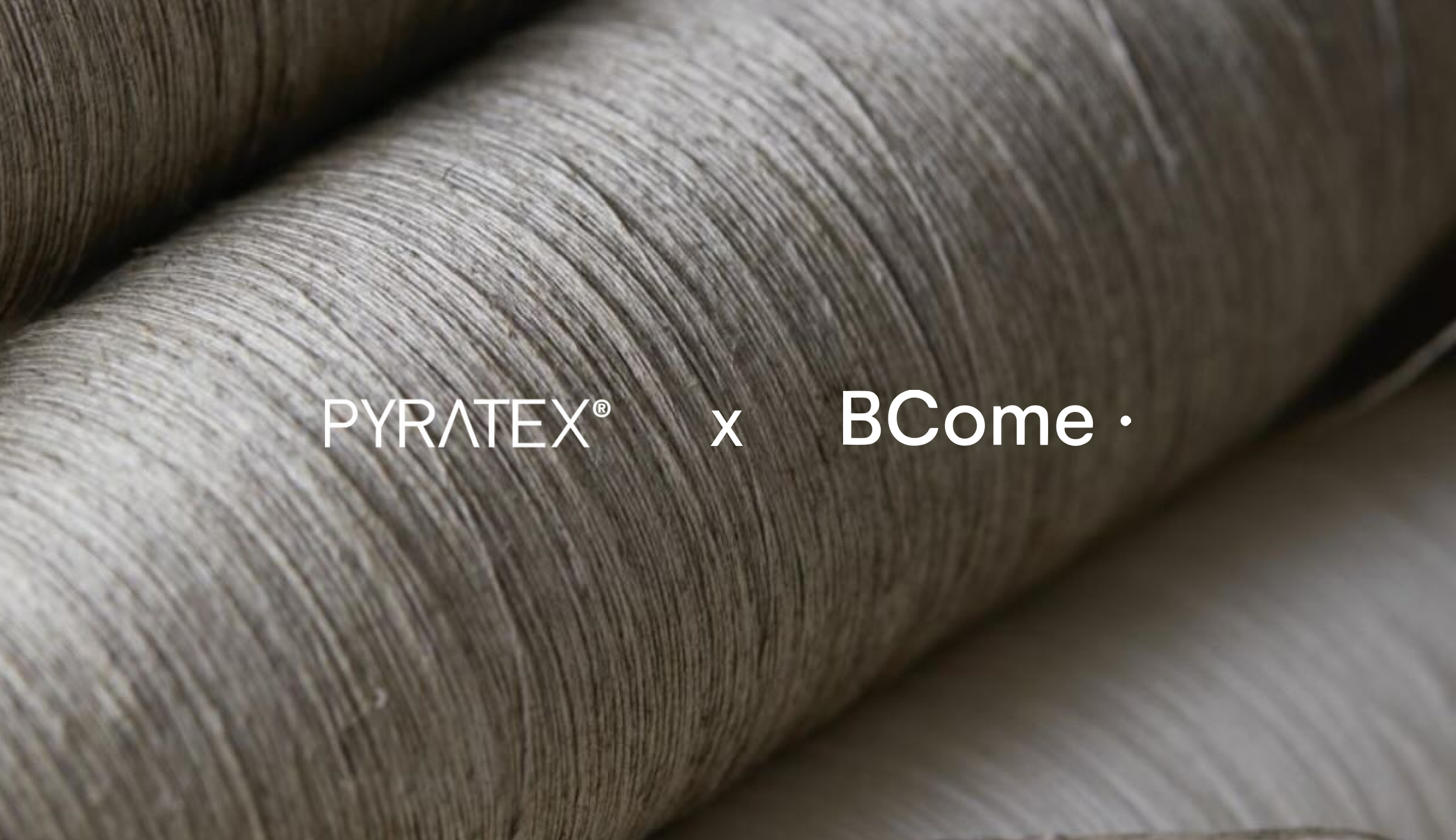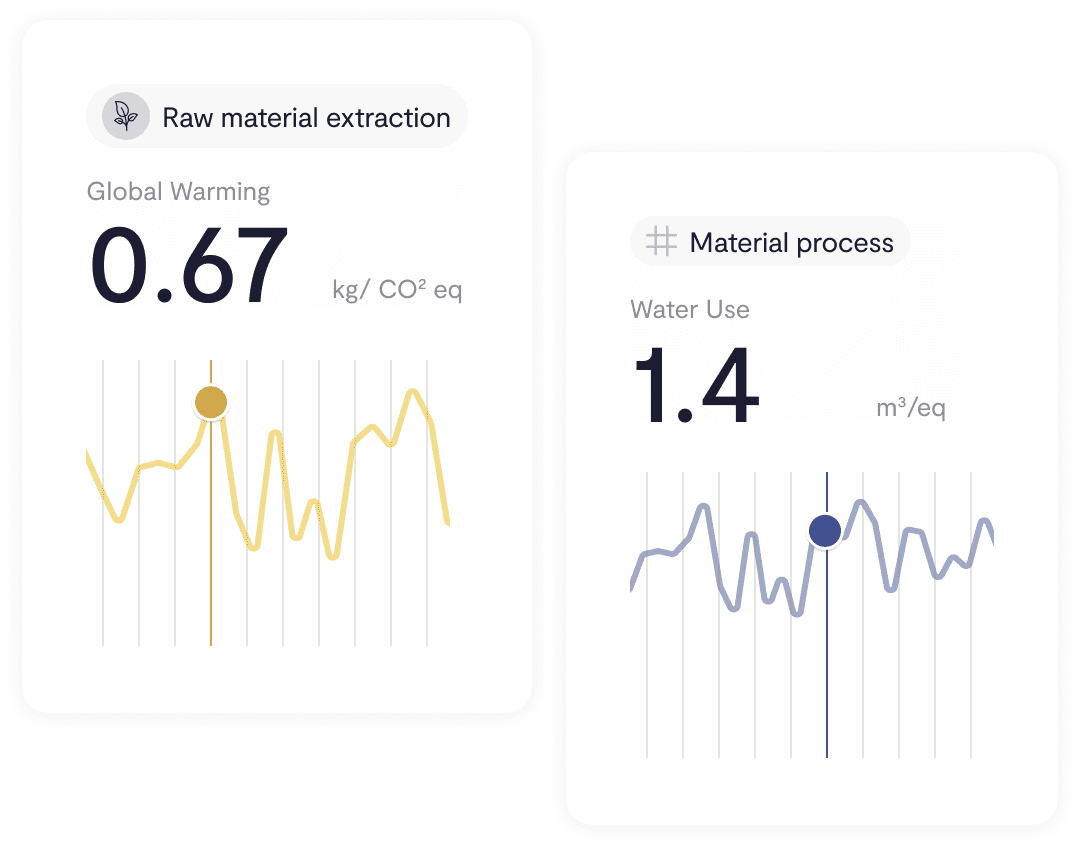PYRATEX, an R&D company, has made a significant impact on the textile industry by specializing in the production of fabrics and knitwear made from natural, bio-based, and recycled materials. Its constant innovation in the use of sustainable materials has positioned the brand as a key player in the movement towards more responsible fashion.
In this insightful conversation with BCome, Regina Polanco offers a deep dive into PYRATEX’s vision, sharing insights on the adoption of next-generation materials and their potential to transform the fashion industry, driving greater scalability in sustainability without compromising on quality and design.
Over time, sustainable options may not only match but also redefine what is possible in textile design. In order for that transformation to happen it is important to inform and raise awareness among consumers
Regina Polanco, Founder & CEO of PYRATEX
PYRATEX is at the forefront of developing next-generation materials, such as fibers derived from agricultural waste and seaweed. What do you think is the biggest challenge for the fashion industry to fully adopt these materials?
R. The industry has always been marked by a strong focus on aesthetics and a constant need for novelty. As a company positioned at the forefront of material evolution, we see that the design possibilities of sustainable materials are expanding rapidly due to innovation and growing consumer demand for eco-friendly options. The gap is narrowing as advanced sustainable materials develop, offering unique properties and aligning with the industry’s shift toward responsible design. Over time, sustainable options may not only match but also redefine what is possible in textile design. In order for that transformation to happen it is important to inform and raise awareness among consumers. There are many misconceptions when it comes to the end of life of a product. I think many people still think that it’s OK to buy many clothes, because they buy recycled polyester from bottles and donate their used clothes. Of course, separating textile is the way to go! But in reality less than 1% of textile waste will be recycled into materials that go back into the fashion industry.
Are there any key trends or initiatives that could drive the fashion industry towards the adoption of next-generation fibers?
R. It goes without saying that legislation will broadly affect how brands produce, trace, and communicate their practices. One specific regulation that will significantly impact sourcing and design decisions is the eco-design legislation. The upcoming Digital Passport will be key in defining what to measure and communicate to the customer in terms of product information, which will influence the purchase decision. The supply chain is complex so it’s very important the industry aligns on the key performance indicators. We have understood the importance of data from a very early stage, which is why we are collaborating with BCome since 2021. In fact, I think we are the only textile company who is measuring the impact of its productions. Is it a perfect solution? As an industry, we have only just started to collect data, so the more fibers and processes are assessed, the more we will learn and fine-tune our perception of what responsible materials look like.
The supply chain is complex so it’s very important the industry aligns on the key performance indicators. We have understood the importance of data from a very early stage
Regina Polanco, Founder & CEO of PYRATEX
PYRATEX has collaborated with brands like Ganni or Karoline Vitto, which are gaining presence on some of the most recognized runways. How do you think these partnerships could influence the future of sustainable fashion on global catwalks?
R. Runways are a hub for creativity and innovation, offering brands the freedom to tell stories and showcase the life behind their garments. In our case, having our materials showcased on the runway is a powerful way to spotlight alternative textiles. Take Ganni for example, they are not just innovators in terms of design and materials. They were one of the first brands to put their suppliers into the narrative, instead of claiming these innovations for themselves. We believe that transparency and collaboration across the supply chain is necessary to make the transition. Showcasing innovative textiles on such prominent platforms shifts perceptions, demonstrating that these sustainable options can rival, traditional materials in terms of creativity and appeal.
Is there any collaboration or innovation that PYRATEX is working on that particularly excites you for the coming months?
R. We are constantly developing materials with new fibers so there are several collaborations that we are currently working on! For example, the Cradle 2 cradle certified polyester which allows for rapid degradation of microplastics. Furthermore there are 2 exciting Spanish projects we are working on: a line of high-quality fabrics from recycled cotton in collaboration with Recover® and we have been working for months now on a new collection of fabrics made with Spanish Cotton. We realized that less than 1% of cotton is produced in Europe, and the only 2 places are Greece and Spain, in Andalucia, who then often export the cotton to Asia. So now we have created a line with GMO free, fully traced cotton from Spain, which brands will launch with next year.
The last few years have seen significant progress in textile innovation, but there is still a long way to go. What do you think will define the future of the fashion industry in terms of sustainability in 2025?
In order to achieve meaningful change we need collaboration. An approach supported by technology can drive this progress
Regina Polanco, Founder & CEO of PYRATEX
R. Bigger brands have been using preferred fibers in the past for capsule collections. Now we are seeing a shift where brands are interested in sourcing preferred fibers for their basic designs. As awareness grows, they are typically looking for recycled fibers and we expect this trend to continue next year. Thanks to the anti-greenwashing legislation, the demand for certification to prove and claim certain eco-friendly aspects has definitely increased. Lastly, in order to achieve meaningful change we need collaboration. An approach supported by technology can drive this progress.
This interview is a sneak peek from the Sustainability Handbook 2025: Fashion’s Breakpoint. Get a closer look at the key challenges the fashion industry will face in the coming months, and find out how BCome can help you tackle them with practical solutions. Whatever your business needs, we’re here to provide personalized support tailored just for you.

Regina Polanco is the Founder & CEO of PYRATEX.









